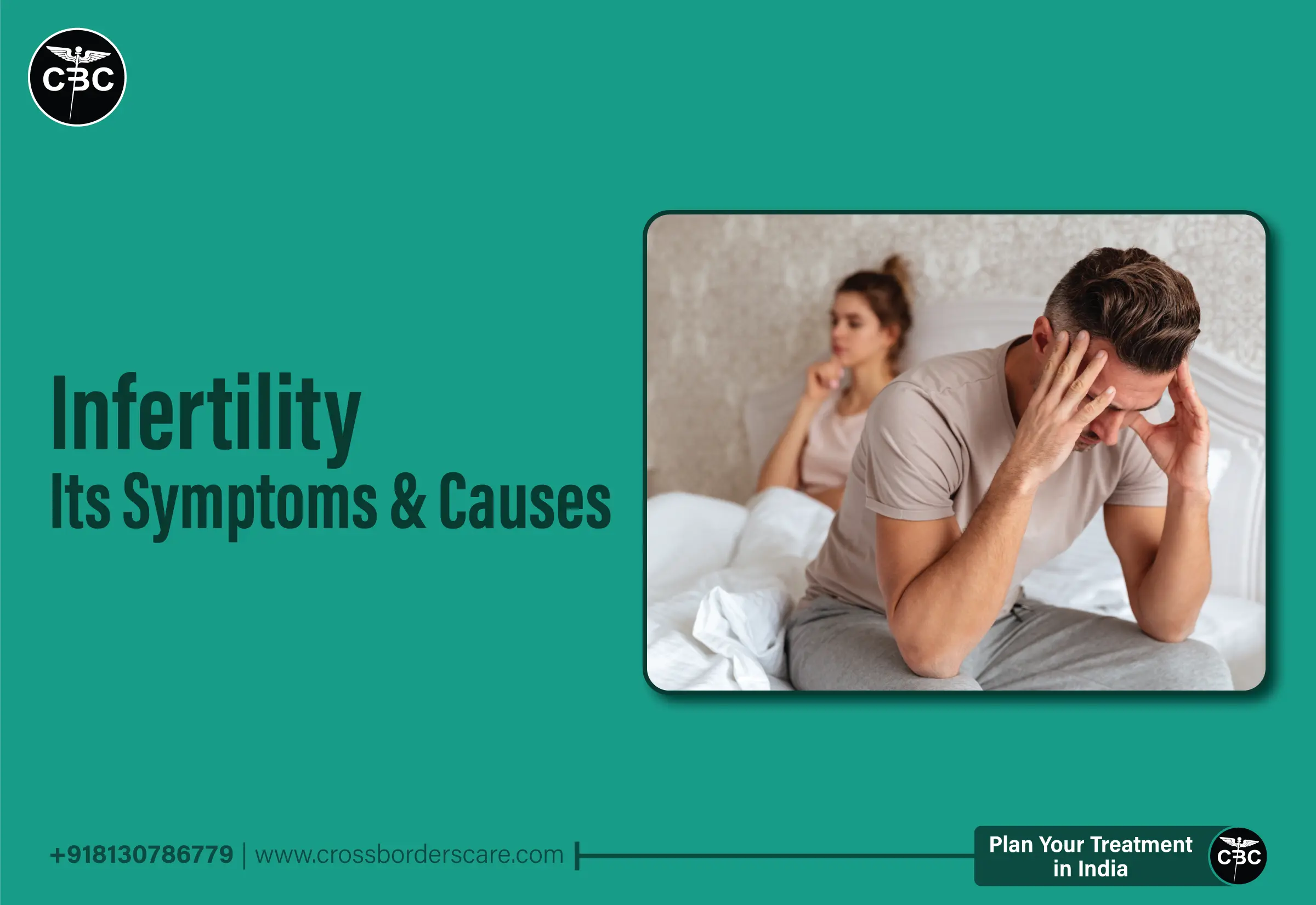Are you trying to have a baby, but it is just not happening? Millions of people around the world are facing the same challenge. Infertility is a medical term for when you cannot get pregnant despite having frequent sex with your partner.
Infertility can happen when you and your partner are suffering from any underlying disease. But there are now many safe and effective treatment options by infertility specialists in India that can boost your chances of getting pregnant.
In this blog, we will look into the symptoms and causes of male and female infertility. Continue reading to gain some valuable insights on the same:
Symptoms of infertility in women
Common symptoms of infertility in women are:
Irregular Periods
The average women’s cycle is 28 days long. Anything longer than a few days of that is considered normal, too. For example, women who have a 33-day cycle, a 31-day cycle or a 35-day cycle are also considered normal.
But when the menstrual cycle starts varying so greatly that she fails to estimate when her next period will arrive is said to be suffering from irregular periods. This can be hormonal or due to PCOS. Both these conditions can be a major cause of infertility.
Painful or heavy periods
Most women experience cramps during their periods. But when painful periods start interfering in your daily life, then it can be a symptom of endometriosis.
No periods
It is extremely common for women to skip periods here and there. It can be due to stress or heavy workouts. But if you haven’t had your periods for a very long time, it is time to get your fertility checked.
Hormone Fluctuations
Hormone fluctuations can also lead to infertility among women. It is time you consult your healthcare provider if you experience any of the following symptoms:
- Skin issues
- Reduced sex drive
- Facial hair growth
- Hair thinning
- Weight gain
Pain During Sex
Some women experience painful sex their entire life. It could be related to hormonal issues, like endometriosis, or any other condition that can cause infertility.
Symptoms of infertility in men
Change in sexual desire
Like females, male fertility is also linked to hormones. If you have experienced changes in sexual desire, it could indicate issues with infertility. Testosterone is the key hormone of male fertility. The pituitary gland produces this hormone, so any problem with the pituitary may also influence male infertility.
Erectile Dysfunction
Hormonal changes, psychological factors, and physical issues may make it difficult to keep an erection. If it becomes a regular occurrence, then it can also be a sign of infertility.
Problem with Ejaculation
Having difficulty in ejaculating or changes in ejaculation can also be a symptom of male infertility.
Changes in testicles
Healthy testicles are very important for male fertility. Small and firm testicles are signs of hormone issues. On the other hand, swollen and painful testicles can be a sign of infection and a symptom of male infertility.
Infertility Causes
Infertility is defined as the inability to get pregnant after 12 months of trying. Any person of either sex who fits this definition is experiencing infertility.
Causes in Females
Ovulation Problem
Ovulation is a monthly release of eggs. Problems in ovulation occur due to:
- If prolactin levels become too high
- An overactive or underactive thyroid
- PCOS
- The problem is the uterus or fallopian tube that prevents the egg from traveling from the ovary to the uterus
Other causes
- A chronic condition like AIDS or Cancer
- Primary ovarian insufficiency occurs when ovaries stop working before 40 years of age
- Poor egg quality
- Pelvic surgery, which can cause damage to fallopian tubes
- Fibroids in the uterus interfere with implantation, preventing sperm from fertilizing with egg
- Endometriosis ( when cells that grow in the lining of the uterus start growing somewhere else
Causes in Males
Numerous environmental and biological factors affect fertility in males. These factors include:
- The inability to produce sperm cells, known as Azzospermia
- Production of poor quality sperms known as oligospermia
- Genetic diseases like myotonic dystrophy or Klinefeflters Syndrome
- Malformed sperm, that is, the sperm that cannot live long enough
- Autoimmune disorders, diabetes
- Trauma to testes
- Hormonal disorders that affect the pituitary gland
- Cancer
- Defects in tubes that transport sperms
- Any prior surgery like vasectomy or testicular surgery can also affect sperm count
Environment Factors that affect male and female fertility
Specific environmental factors also lead to infertility. Some major environmental causes are:
- Exposure to industrial chemicals, pesticides, herbicides
- Exposure to lead or any other heavy metals
- Radiation and X Rays can also decrease the ability to reproduce
- Overheating of testicles in males can also impair sperm function
Health and lifestyle causes
Some other causes of male and female infertility are:
- Drug use
- Alcohol consumption
- Tobacco and smoking
- Obesity
In summary, male and female fertility are multifaceted components of the human reproductive system. While both genders face various challenges that can impact their ability to conceive, a comprehensive understanding of these factors, lifestyle choices, and available treatments by infertility specialists in India is essential for individuals and couples navigating the path to parenthood. By recognizing the interplay between male and female fertility, we can better address issues, make informed decisions, and seek appropriate support when needed.
November 13, 2023




















